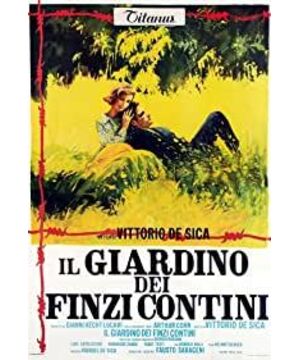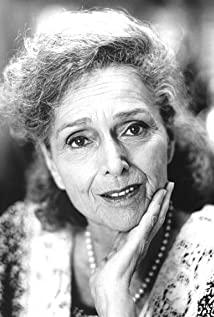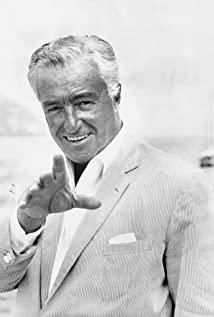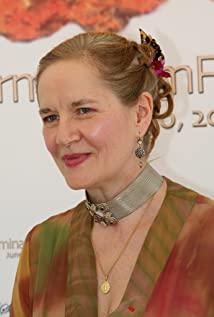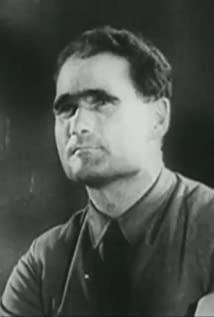The opening is sunny: Nine young people, in white tennis clothes, and their bicycles drove through the quaint streets, full of vitality. Towards the end, the line of sight went from the window of the classroom where the Jews were temporarily held, the camera panning, scanning the city roof, and then switching a few frames of empty street scenes, and then the empty Feniz Gardens and quiet tennis courts, amidst bleak music. , We heard "Auschwitz". Warm sun and winter snow, heaven to hell, the whole film is full of opposites, just like its beginning and end. From my personal point of view, I don’t think this movie won the Berlin Golden Bear and the Oscar for Best Foreign Language Film at the same time. The story is simple on the surface and the plot is plain, but it is actually rich in connotation. As a work from 1970, some of the topics involved are not outdated in today's view after a full half a century. 1. Fascism/anti-fascism
The escalation of fascism in Italy is the background of the whole story, and the tone of the story is anti-fascist. And there are some fascist details in the film: bicycles with Nazi flags in the street, people watching Hitler’s films in the theater, and thousands of people listening to Mussolini... Malnate said, "The middle class is more or less fascist. Apart from you Jews. Our working class is all anti-fascist.” He who was anti-fascist was eventually arrested and became a soldier in the fascist army. It is not difficult to suppose that there are many anti-fascist soldiers in the fascist army. However, in the face of the coercion of power, personal will is powerless, which is another set of opposition. 2. Masculine/soft
The appearance of several young people can be roughly divided into two categories: masculine, Bruno and Malnate; feminine, Alberto, Giorgio, Carletto Sani (supporting role, slender boy). The first group had girlfriends or sexual partners, while in the latter group, Giorgio couldn't ask for Micol. Alberto was a delicate homosexual. I haven't seen the director's other works, and I dare not say whether this is his aesthetic tendency, but the sexual attraction in this film is obviously related to the masculine appearance. This association is concentrated in Malnate. He is in the middle of the world, and the love scene is invincible. He conquered Micol and made Alberto fall. Even the shooter girl is his "friend". A worker who claims to be social infrequent ("I don't go out often, just like Albert"), but within a month of being in Ferrara, he entered the circle of friends of the middle class and even the big bourgeoisie. Why? With reference to Dulowa, the protagonist of Maupassant's novel "Joy Friends", it is not difficult to imagine him taking advantage of his pleasing appearance. The girl at the stall commented on his statement that there is a blatant truth: "...big nose, black hair, I can't imagine what's under the belt." Therefore, the stalk of a big nose has a long history all over the world. 3. Friendship/Betrayal
Malnate is a male Chinese green tea. The scene where he slept with Micol in the back part of the film was a bit unexpected at first, but in fact, there is a foreshadowing in the front. In the scene where Alberto played chess with Malnate, Malnate was staying for dinner, and when he learned that Micol received a call from Giorgio, he immediately changed his face and said that he had decided to leave now. Looking back, he was expressing his dissatisfaction with the closeness of Micol and Giorgio. But he and Giorgio didn't have the performance of love rivals from start to finish, instead they were good friends. Before joining the army, I called Giorgio out and asked why he didn't communicate with Micol? Is it really impossible to save it? "You don't know how much Micol likes you, how much you support you, how much Alberto respects you" "No matter what happens, your friendship with her is worth maintaining." Although Giorgio had already smashed Malnate and Micol's intimate action on the tennis court before, he should really treat him as a friend, and said sadly: "Now you have to go... You will write to me. Bar?". Finally, Malnate said that it was 12 o'clock and I had to leave, otherwise I couldn't get up the next day. Then turned around, stepped on his beloved bicycle, headed to the garden hut, and had a spring night with Micol.
4. High cold / unrestrained
Micol has a pure face, tall, blonde hair, and wealthy daughter. He is a goddess. But the goddess is not a nun, not a teacher, she has her own desires. In the childhood scene of Hidden Rain, the hostess said, "I want to feel like a woman. What about you? Do you still want to be a child?" Wet hair and ecstatic eyes are a call of love. Giorgio should kiss him right now, burning the fire to dry the wood. But he replied softly "No, but...", it was this "but" that suddenly ignited Micol's dissatisfaction and left Giorgio and left. It is strange that this little incident became a turning point in the relationship between these childhood sweethearts. No matter how Giorgio later expressed that he was crazy in love with Micol, and even when he was almost strong in her family, he couldn't push this relationship to the track of love. Compared with Giorgio, a middle-class literary and artistic male who is doing a doctoral dissertation and researching poetry in literature, Malnate, a rough proletarian worker, seems to understand women better. When he chatted with Alberto, he said: "I have always liked beautiful, stupid, and nasty women." Although there is no positive performance in the film, it can be inferred that he has a very high emotional intelligence and countless pick-ups. Although at the first meeting, Micol showed disgust towards him, but later he should see through Micol's cold appearance and inner loneliness and surging sexual desire. She is eager for intense sex, which can be confirmed in her conversation with Giorgio: "Lovers have an urge to conquer each other, but we are like two drops of water. How to conquer or tear each other to pieces? Sex with you Will be like brothers, like Alberto." On the one hand, this passage can understand that we are sending good people cards. We are too like relatives to love each other. But more importantly, she wants to be in a conquered position. It was also in this scene that Giorgio realized something and said, "You may just not like my appearance". This actually goes back to the topic of masculinity mentioned in point 2. Giorgio and Alberto are too delicate, he is about the same height as Micol, and Malnate is not only half a head taller than Giorgio, but also has a stronger body, rough appearance and hormonal aura. It is exactly what Micol desires and is irresistible.
5. Same sex/opposite sex
Regarding Alberto's same-sex orientation, there is no real hammer in the film, but his look at Malnate should explain a lot. From the dialogue between him and Malnate playing chess, we can also know that women have no attraction to him. Many of his actions are "mysterious" to Malnate, and he is so "complex". This is probably not understanding the darkness of night during the day. Malnate is a three-sentence woman. The tennis court said that he likes "soo". When playing chess, he asked Alerbto if he had ever visited a brothel. Alberto was a little surprised and did not answer, but instead asked "Where are you?" "Me? Of course I visited." At Malnate's house, he asked Giorgio: "Why haven't been to Feniz Gardens for a long time? What's the matter, there are women?" Before going out: "Where are we going? Do you want to find a woman or watch a movie?" He and Alberto It's so different, it's logically impossible to go together. Alberto may be like those women, obsessed with his appearance, but why can he and Alberto be such good friends? As in the previous analysis, there are used ingredients in it. It's also possible that he actually eats all men. During the 22-minute conversation, Micol expressed his disgust with his relationship with his younger brother in a very local manner, but I can’t speak Italian and the English subtitles are inaccurate, such as "Is your fetish, we know", and I can’t understand III-Bred, just I can doubt it first. But Micol obviously knew that his brother's feelings for Malnate were not simple. It was the game of chess. Alberto said, "He (Malnate) is eating dinner here"." Micol replied with a little displeased "Are you sleeping here?" Malnate was leaving, and she said, "Stay and keep making Alberto happy." So between Malnate and the two siblings, there is a male-male/male-female opposition. 6. Submissive/Rebellious Because of the platoon, Micol and Albert were removed from the tennis club, so they organized a kick-off match on the grounds of their own Feniz Gardens. Bruno Lattes, who was also a Jew, entered the garden for the first time and said jokingly, "Thanks to those fascists for giving us the opportunity to come in." At that time, if there was social media, Bruno should be able to be scolded when he posted this on the Internet. Because of petty profits and disregard of national justice, there will definitely be no spine in future accidents, but one cannot simply imagine a person. Later, Italy searched for the Jews, named the names of the Jews, and took them away in one pot. We did not see any scenes of resistance. Everyone was very obedient and let them go. It can be interpreted as elegant and calm, but I am more inclined to interpret it as weakness. Although there is no performance in the film, but combined with the historical background, it is not difficult to know that in 1943, Italy's large-scale search of Jews and sent them to the Auschwitz concentration camp in Germany was an abyss that almost never returned. But the only resistance was embodied in Bruno. After being taken away by the police in the theater, he actually took the opportunity to break free. Although he was still outstretched in the end, he at least did not be a good sheep, and showed a light of resistance in the dark night. 7. Giorgio's torment/ stealth went to Grenoble, France to visit his younger brother Ernestor who was studying there. During the meal with a few Italian students. A student with a number on his arm aroused Giorgio's curiosity. After questioning, it was learned that the student had personally visited the Dachau concentration camp. He said, "I came out alive because I was a coward. I told them that I became a Nazi." Is it shameful to have a life? Maybe, but compared to losing your life meaninglessly, you might still have a chance to join resistance while you are alive. The people who remain in the concentration camp are faced with endless suffering and endless death experiments. There is actually no major event besides death and life. For the sake of life, it may not be shameful to lose a little dignity. 8. General idea/preparation Wealth and status often make people feel lucky and lead to catastrophe. At this point, the Finzi-Contini family stepped on the pit. As a big bourgeoisie, Micol's father not only did not oppose the anti-Semitism bill, but was even happy to see it passed. To borrow the words of Giorgio's father, "their family is different from ours, they are not even like Jews". Large families are also big benefactors of charitable donations to the government. These may give the family a false sense of security, or luck, feel that things are not so bad. It is true that Italian fascists are not as anti-Semitic as Germany, and Mussolini still has some Jewish friends. In the end they were arrested and eventually sent to Germany. They hid in the world of Feniz Gardens, thinking it was a sanctuary. The middle-class Giorgio family has a much stronger sense of worry and can understand the desire to come. Change the seller’s property into cash and send it to the youngest son abroad. In the end, their father was arrested, and Giorgio and his mother had escaped. It is conceivable that there was a plan. This incident is a bit like the spread of new coronary pneumonia. Some developed countries feel that their medical systems are complete and face the epidemic that is far apart, but they have a false sense of security. They feel that they will not spread in their own countries, but forget. The virus is also like a Nazi. It only recognizes whether you are human or not, regardless of your status or status, just like the Nazis exterminating the Jews, regardless of your wealth. 9. Love/Reality. Aryan Adriane has been in love with Bruno Lattes, a Jew for many years, and the relationship has been very good, but in the end Lao Yan separated because the anti-Semitic law prohibits intermarriage with Jews. When Bruno talked about this, he actually had a slight complaint. "I heard that she is engaged to a boy in Bologna. This may be good for both of us. So far, it has benefited her more than me..." In the face of the powerful reality, the love network that has been woven for many years is said to be broken. Just broken.
(Video resource link: https://www.youtube.com/watch?v=PxSPu25xbQw )
View more about The Garden of the Finzi-Continis reviews


